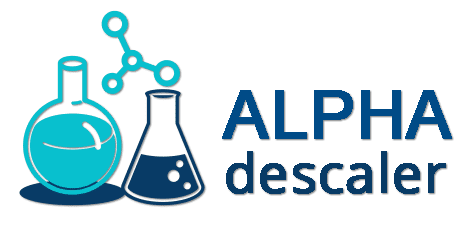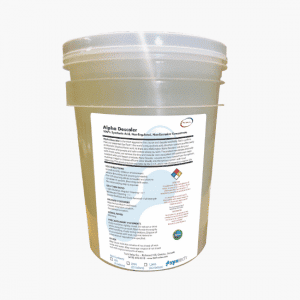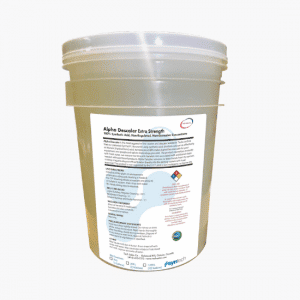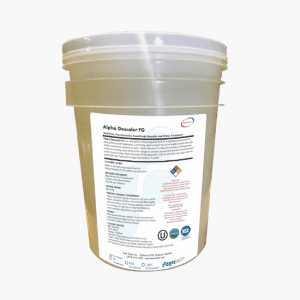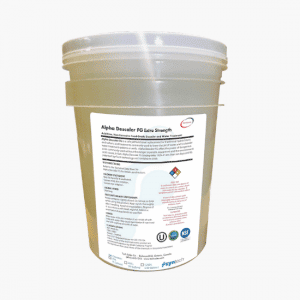Marine Applications
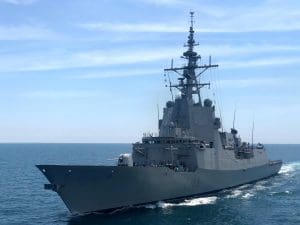 Heat exchangers on board vessels are used extensively. Systems that use heat exchangers include lube oil, jacket water, steam systems and handling main seawater. The systems are often interconnected by heat exchangers in order to remove heat generated from running equipment from the engine room. The two primary types of marine heat exchangers used aboard vessels in the maritime industry are plate, and shell and tube.
Heat exchangers on board vessels are used extensively. Systems that use heat exchangers include lube oil, jacket water, steam systems and handling main seawater. The systems are often interconnected by heat exchangers in order to remove heat generated from running equipment from the engine room. The two primary types of marine heat exchangers used aboard vessels in the maritime industry are plate, and shell and tube.
The shell and tube type may be copper-nickel but plate exchangers, which are extensively used are usually stainless steel or titanium.
The hydrochloric acid problem.
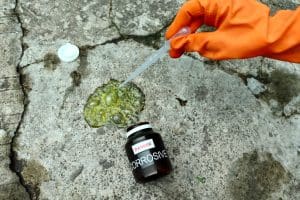 HCl or hydrochloric acid based descalers are still being used for descaling marine heat exchangers. While they are inhibited it does not negate the problems associated with hydrochloric acid.
HCl or hydrochloric acid based descalers are still being used for descaling marine heat exchangers. While they are inhibited it does not negate the problems associated with hydrochloric acid.
Hydrochloric acid is corrosive to the eyes, skin, and mucous membranes. Acute oral exposure may cause corrosion of the mucous membranes, esophagus, and stomach and dermal contact may produce severe burns, ulceration, and scarring in humans. Many companies claiming non-toxicity of HCl based products fail to provide a toxicity rating listing it usually as “not available”. Whether or not inhibited, Hcl is still hydrochloric acid
Hcl is not biodegradable. Hydrochloric acid will likely be neutralized to chloride by the alkalinity present in the natural environment but on its own is simply no biodegradable. Claim to biodegradability are usually made with heavily diluted material or assumptions that the product is relatively neutralized after use.
The most common environmental exposure condition responsible for stress corrosion cracking of stainless steels is the presence of chlorides which of course on in Hcl based descalers. Continued exposure to descaled composed primarily of Hcl, even in low concentrations will damage heat exchangers made of stainless steel. In the last two years it has been found that even titanium is not immune to the negative effects of chlorides.
Alpha Descaler and Alpha Descaler FG, in the standard versions and extra strength versions have no chlorides at all. There is absolutely zero concern for stress corrosion cracking. Th products are also organic and 100% biodegradable in 10 days, even as it comes full strength. They are truly non-toxic and is indicated as such with their LD50 toxicity tests clearly shown on the Saftey Date Sheet for each material. Furhermore, corrosion tests compared against some common HCl based descalers claiming non-toxicity indicate all the Alpha Descaler versions to have the lowest corrosion rates on all common metals used in heat exchangers and also are marine safe! – an ideal situation for use in marine applications.
Removing Scale buildup esp. in seawater.
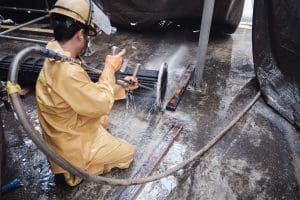 The main component of any scale buildup in marine applications is calcium carbonate, calcium sulfate and magnesium hydroxide with most of the scale calcium carbonate.
The main component of any scale buildup in marine applications is calcium carbonate, calcium sulfate and magnesium hydroxide with most of the scale calcium carbonate.
A problem which inorganic descaler such as HCl based products is that they start out fast and slow down as they get weaker during the descaling process. This causes excess gas production and unless the system is well vented during the descaling process it prevents the descaling solution from contacting the scale surface to dissolve it when the gas is present and the process to descale can take longer as a result. So very low gas and fume production by the chemical is an advantage.
All Alpha Descaler versions are essentially non-fuming and the foaming action is very low so venting is still required but the low foaming makes the chemical contact much more efficient for dissolving the scale buildup. This makes the cleaning process much more efficient. Also, unlike traditional descaling solutions it does not start fast and then slow down – it starts and continues to dissolve the scale buildup at the same rate throughout the process. All the same scale that Hcl can remove, will be removed by all versions of Alpha Descaler.
Rust Removal in Heat Exchangers is Important as Seawater is Still Corrosive.
 Since many heat exchangers, especially plate exchangers are in use with seawater, and many are made of stainless steel, the natural corrosion that seawater has can leave rust deposits onside the heat exchangers. One problem caused by these rust deposits is that they become a breeding ground for algae. So if the rust can be removed along with the scale, it also prevents the problems that algae buildup can cause. Normally, any descaler used will also kill any algae which can then be washed out and that includes the Alpha Descaler products.
Since many heat exchangers, especially plate exchangers are in use with seawater, and many are made of stainless steel, the natural corrosion that seawater has can leave rust deposits onside the heat exchangers. One problem caused by these rust deposits is that they become a breeding ground for algae. So if the rust can be removed along with the scale, it also prevents the problems that algae buildup can cause. Normally, any descaler used will also kill any algae which can then be washed out and that includes the Alpha Descaler products.
The problem with some Hcl based products that claim safety in use, is that the Hcl content is only around 10% or often less. This may not be enough to remove the rust completely.
Alpha Descaler FG Extra Strength in particular is used for rust removal on rusted surfaces such as galvanized grating and is left to soak on the rusted surfaces for a mere ten minutes and then washed off along with the rust with little or no effect on the galvanized portion for the short ten minute exposure time.
Similarly, during the circulation of the Alpha Descaler products will also remove rust after it removes the scale buildup which can be covering rusted areas of a heat exchanger.
All Alpha Descaler versions have no special requirements for shipping and considered non-hazardous. This lowers shipping and handling costs. The non-toxicity is backed up with testing and proper reporting on the Safety data Sheets. They are 100% biodegradable in 10 days and marine safe. The products can do the same or better than so-called safe HCl based products and much easier to work with.
ALL PRODUCTS
-

Alpha Descaler
US $ 175.00 – US $ 1,485.00 Select options This product has multiple variants. The options may be chosen on the product page -

Alpha Descaler Extra Strength
US $ 250.00 – US $ 2,420.00 Select options This product has multiple variants. The options may be chosen on the product page -

Alpha Descaler FG
US $ 160.00 – US $ 1,210.00 Select options This product has multiple variants. The options may be chosen on the product page -

Alpha Descaler FG Extra Strength
US $ 210.00 – US $ 1,650.00 Select options This product has multiple variants. The options may be chosen on the product page
If you need consulting beyond the scope of a complementary sales inquiry, please contact us by email.
